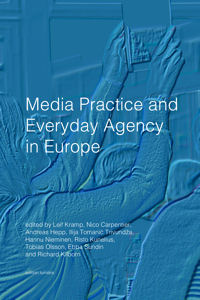
| |||
Media Practice and Everyday Agency in Europe | |||
| Title chapter: | A Crooked Balance of Interests? Comparing Users' Rights in Printed and Electronic Books | ||
| Authors: | Hannu Nieminen, Anna-Laura Markkanen | ||
| Keywords: | User Rights, Books, Electronic Books, Copyright, DRM | ||
| Abstract: | This paper explores how the user's rights concerning electronic books differ from the rights of use for traditional printed books. The assumption is that in the case of the printed book users' rights are more extensive and the user is freer to use the content than in the case of the electronic book: the printed book can be loaned and resold, whereas the e-book cannot. The main claim is that the balance between the rights of the copyright holder and the user has changed since the advent of the electronic book, restricting the efficiency of copyright limitations in respect of user rights in many ways. The basic assumption in this paper is that from the viewpoint of a user there is a significant difference in the conditions of use between the traditional printed book and the digital book. In the case of the former, the user owns the book as a physical entity, and as long as he or she does not use its content illegally (for example, selling copies without a licence) the user can do whatever they want with their copy. In the case of the latter, the user does not usually own the book or its digital copy in the same way as a physical entity; in most cases the user can only buy the right to have access to a copy, in many cases for a limited period of time. Additionally, in the case of the digital copy, the usage is normally monitored and controlled by a specific 'digital rights management' (DRM) tool. This seems to reflect a major change in how copyright as a legal construct is understood. Traditionally, copyright regulation has been understood as constructed of an assumed balance between the exclusive right of the original creator - the author - to decide on the use of their work, and the right of the public at large to enjoy access to the work. Although the creator has been recognised as having exclusive rights to the products of their work, this is balanced by the 'public interest' claims, stipulating the conditions under which society agrees to respect and protect the copyrighted works. In this paper, we ask two questions: - If our observation is correct and a change has taken place, what kind of a change is it? - What are the practical consequences, especially from the viewpoint of users' rights? | ||
| >Click here to download full chapter [pdf] | |||
|
The | |||